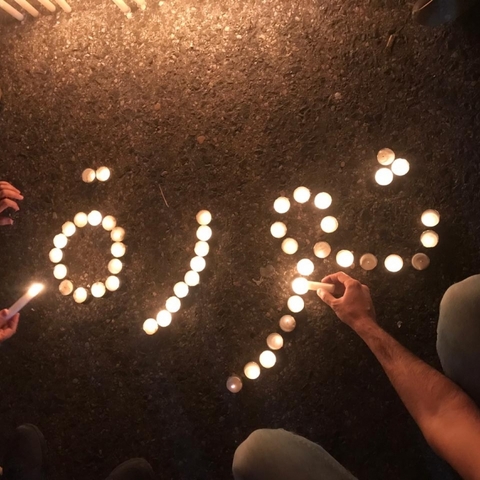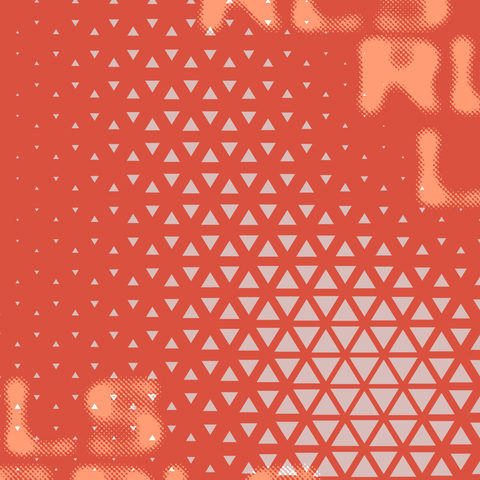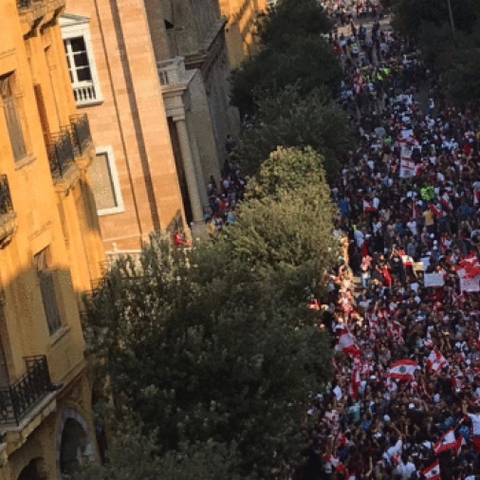Iraq at Crossroad: Social Movements and Contemporary Challenges
Mapping the Labor Movement and 2015 Mobilizations
In the first part of the, “Divine Comedy”, 13th century poet Dante writes, “Do not be afraid; our fate cannot be taken from us; it is a gift.” Nothing represents Iraqi’s better. Iraq is at crossroad. The long reign of Saddam Hussein’s authoritative regime divided Iraq on sectarian and ethnic lines. From descent to darkness, the everyday violence and torrent of horrors became a part of Iraq. The life under President Saddam Hussein between 1979-2003 was insufferable or as Kanan Makiya’s called it, “The Republic of Fear”. However, the aftermath of US invasion in 2003 brought Iraq under seize. The ‘De-Ba'athification’ policy by the US and its supportive governments in Baghdad was designed to bring a new political system but became a tool to suppress the ‘Sunni populations’ in general. Such policies bred the monster of violent sectarianism and caused unending violence. Islamic State was the product of such dreadful events.
The rise of ‘Islamic State’ was the ultimate apocalypse. Millions have died since then and millions have lost their hope for a normal life. However, the mercenary group has lost its physical presence in Iraq; it has further deepen the gulf alongside sectarian and ethnic lines.
But like phoenix, Iraqi people rose and responded the incessant horrors that have enveloped their fate. The Arab uprisings that changed the face of the modern Middle East arrived in Iraq as a new dawn. From Sulamaniya and Erbil in Kurdish region to Kirkuk, Fallujah, Basra and Baghdad, Iraqi’s came together to confront the climate of fear and voiced their opinion to wear a collective Iraqi identity. At this particular juncture, the New Social Movements brought the agents of hope from labour unions, unemployed youths, anti-corruption brigade, women right activists and other such groups to form faceless movements at different places. They forged an alliance, hoping for a stable and an inclusive Iraq.
The spontaneous reactions manifested the agony and anguish of Iraqi people. However, despite there was a hope, the challenges were manifold. The issues of sectarianism, corruption, ethnic differences, foreign interventions and unemployment remained poised for every Iraqi who were struggling to confront those challenges. But, from demonstrating against worsening electricity crisis to build an alliance of civil society groups; the arrival is an outcome of countless movements. These movements were offering an important lens to understand two important questions. Firstly, how did these movements really start and secondly, how did it become mainstream without any patronage of political parties and religious authorities. The life after Islamic State has offered new challenges before Iraqi people and these new movements are important check-points to understand the changing dynamics in the present day Iraq.
Understanding New Social Movement
New Social Movement(NSM) first emerged during 1968 student movements in France. The nature of NSM contemplates a collective voice by the civil society groups and through a positive change in the political and cultural sphere of that society. What makes it different from the Old Social Movements is the goal and nature of these movements, sources of their identity and concerns with ideological forms. Old Social Movements were based on the identity of ethnicity, gender, and sexuality in general. Habermas made a distinction between the ‘new’ and the ‘old’, on the basis of their character. For him NSM calls for the self-determination and seeks autonomy, while the old movements were seen in the realm of power struggle and maximization of influence. Similarly, Ronald Inglehart finds NSM as post-materialist. The NSM unveils a collective identity, that identify groups interest and their socially constructed grievances. NSM is a ‘network based’ activity unlike the centralized organisational character of the old movements and has a profound urban character seeking decentralized governments and resistance to bureaucratic forms of organization. In the New Social Movements, the mobilization is based on the collective consumption like the protest on the issue of electricity in Iraq. New Social Movements offer much emphasis on the quality of life for the individual in general and do not represent political parties or a firm, therefore, always wrestle with the question of legitimacy. These new movements do not seek political power and concentrate on the individual rights; a conflict between the political status and everyday life. One of the limitations these movements find is to achieve a social base.
Another gravity, that NSMs aim is to bring value to life; an important human agency to provide social justice. The current phase of NSMs in the age of internet pledge a direct action based on networks to alter the state power and apply a strategy to transform the functions of state power. These new movements accord its strength through public sphere and use technology to assert its objectives. But the larger question remains the absence of social base, the language of protests, symbol of representations and others. The role of civil society groups aim for self-defence and decentralization of power; a critical importance for the democratization process. In Iraq, how these movements have accomplished to endeavour a common platform for these diverse groups and how did they put up a common voice in resisting the hegemonic structure of the state is a significant inquiry.
New Social Movements and Agents of Hope: The Case of Iraq
New Social Movements came as a new dawn in contemporary Iraq to challenge the paralyzed state of affairs particularly in the post-Saddam period. These movements were spontaneous, apolitical in nature and offering a nationalist character. Since the Arab uprisings in Tunisia and Egypt, Iraq has witnessed massive demonstration of protests on multiple issues affecting common people. Since 2011 and particularly from 2015 every Friday, the protest has been a usual scene on the streets of Iraq. These movements have galvanised people on the streets to demand a new political system based on secular character, against the deepening sectarianism and for the basic human rights for women and workers alike. These movements were challenging the massive corruption in the system and against the toxic sectarian politics which has divided the Iraqi people to face the wrath of everyday violence.
Since the Arab uprisings, the first phase of the protest was all over Iraq including in the Kurdish region. The early protests inspired from the Arab uprisings emboldened with the grim situation of shortage of electricity supply, massive corruption and a call for the political and constitutional reforms in the system. From Kut to Sulamaniya, and from Najaf, Basra to Baghdad, Iraq had seen its own ‘Spring’. Abdul-Aziz Al-Kubaisi who was the Director General at the Iraqi Ministry of Defence resigned to support the protestors. Muntadhar al-Zaidi, a journalist who became a household name after the 2008 incident for hurling a shoe at US president George Bush became a role model of defiance against the authority. On 24th February, he was arrested. Later on 25 Feb, 2011 in one of these protest 29 people were killed, known as the ‘Day of Rage’. These protests were the first phase of New Social Movements in Iraq, a faceless, apolitical, secular and nationalist in character. Nour al Maliki who was then the Iraqi Prime Minister called them insurgents and terrorists. The protestors also target the higher salaries of the parliamentarians. The protest was so massive that Nour al Maliki in Feb 2011 announced to cut down his own salary to half and also revised the salaries of all government officials. In 2012-13 many protests happened against the noxious sectarian politics of Maliki government and demand for his resignation.
The later phase of movements started in 2015. Between July and August series of protests took place against the massive corruption including one at ‘Tahrir square’ known as the Liberation Square in central Baghdad. In August 2016 movements became much stronger when Iraqi women participated in huge numbers. One such protest was the occupation of parliament; Iraq’s ‘own occupy moment’, when protestors carried a peaceful march from Tahrir Square to Green Zone. These protestors were crying for political reforms and against the institutional corruption. The next was the new wave of protests from the labour unions and civil society groups. Iraq has the oldest labour union in the Middle East. In 1920s, when early industrialization started in Iraq, the oil industry and rail road workers formed a union. But during Saddam Hussain, the state suppressed the left movements.
However, in 2015, new labour law was passed which legitimised the unions and full rights were accorded to the women workers. Despite the democratic participation was violently repressed in the post 2010 election, the wheel of protests sealed the convergence between Iraqi social forums; including labour unions and civil society organisations. The first Civil Initiative to Preserve the Constitution (CIPC) was formed and in 2012 UNDP facilitated the first meeting between civil society groups and the parliament. Since, these movements were spontaneous and manifested a national character, it resisted against joining political and religious parties.
From the worker unions, labour unions, peasants, businessmen, women and intellectuals all came together to nourished a new life to the Iraqi civil society. They were protesting for the social justice and social security in the Iraqi society; to weed out the corruption; to challenge the unemployment issue and to reduce the income gap. Iraq’s tryst with new movements brought many divergent groups. From labour unions, left parties like Iraqi Communist Party (ICP), Islamists organizations of Muqtada Al Sadr and different youth organizations like Youth Movement for Change Party, Iraqi Republican Group, State of Justice Party.
In recent May election in 2018, the civil society in Iraq and other groups came together to form an alliance called Sairoon ( forward) . The success of the movements that brought these groups together reflected in Najaf; a conservative and religious site for Shias chose a communist party represented by a woman named Suhd al Kahteb. She has been an active women right activist and an anti-poverty campaigner. The success of such alliance have changed the political landscape of Iraq. These groups had envisioned to achieve its most important gaols; first to end the sectarian system of patronage, a major cause of massive corruption and second is to oppose any foreign power role in functioning of the state. The message was for Iran who has been opposing such alliance as a conspiracy by liberals and communists.
The another rarity of these groups were to oppose the Muhassassa system based on ethno-sectarianism and quotas. The system has been a victim of political theatre and site for major conflicts between many sectarian groups. Muhassassa system has been the source of institutional corruption. The Freedom House 2017 report on Iraq revealed that the existing system has endangered the political rights and press freedom in Iraq. The report confirms the ills of the existing system like Muhassassa, a source of severe insecurity, massive corruption and influence of foreign powers.
The protest started on the issue of electricity but with the rise of several movements and the participation of labour and worker unions, the movements inspired the streets of Iraq. The emergence of civil society and other groups had a significant role in mobilising the masses to have a common Iraqi identity. The new trade union in electricity sector was formed as well as the new social security laws were drafted. The change was startling, when for the first time in Iraqi history, a woman named Hasmeya al Saidawe was appointed as the president of Basra Trade union Federation and the Electric Union. These movements haven’t arrived at the final point considering its non-political and secular face in a deeply politico-religious society. But so far these movements have certainly posit new hopes. This is imperative, therefore, to comprehend the challenges that are real and an everyday reality in Iraq.
Challenges
The New Social Movements lack institutional and structural arrangements. The apolitical nature of these new movements face the legitimacy crisis. It doesn’t contest for power and concentrates on individual and group interests. The major constraints these new movements face is to develop a consensus among various interest groups. Besides these limitations, one real challenge has been the negations with the states. Coming back to Iraq in particular, the challenges are many and one predominant has been the issue of corruption.
However, the active participation of civil society and other groups have brought the issue of corruption to the mainstream but remains as a major political and social problem due to the fragile political system and nature of institutionalised corruption. The patronage network of existing system continues to help the rise of corruption despite Iraq has an accountability act. The political interference in the judiciary and massive corruption in the police have remained a source of security threat. The public service institutions are facing politically motivated appointments. Baha al Araji, who was the former deputy Prime Minister for Energy Affairs faced corruption cases despite the anti-corruption laws. Amnesty International warns that corruption has been on the rise since 2003. The report, a joint study by the World Bank and the World Economic Forum reveals that Iraq stands at 169 out of 180 most corrupt countries in the world. Iraq has only performed better than civil war affected Syria. Iraq’s anti-corruption leader Mishan al Jabari, a senior member of the parliamentary committee of investigating official corruption admitted to the British Newspaper The Guardian that, “ everybody is corrupt from top of the society to bottom, including me”.
The failure of Iraqi Army in the hands of IS militias vindicates how the massive corruption has destroyed the army. The issue of ‘Ghost Soldiers’ shocked everyone in Iraq and beyond. Former deputy Prime Minister and the Finance Minister till 2016, Hoshyar Zebari claimed that 30,000 Ghost Soldiers were working with the Army and they were paid around $ 500- $600 million in salaries. Former Iraqi Trade Minister, Falah Al Sudani was sentenced for 21 years on the corruption charges. Corruption alone has been the source of all instability in Iraq. It has weakened every institution and further widened the inequality in the society. Therefore despite all the success of these movements, corruption has been a major challenge. It was not just a political remark, when the Prime Minister Haider al Abadi stated that, corruption is the biggest threat after IS and called, “ combating corruption is the new war”. The issue of electricity is still hovering and thus to bring any relief would be a huge challenge. Another challenge would be to bring political reforms. The challenge of removing Muhassassa system will be tough. The differences among many interest groups from Islamist parties to Left parties to forge a consensus is another significant due to their own ambitions. Also, the religious-secular difference would be an unspeakable challenge for fulfilling the objectives of the New Social Movements in Iraq.
What Lies Ahead
Iraq is under seize and despite these movements have unravelled positive change the issues are still existing and therefore needed to be addressed. The youth population is more than 50 per cent and the unemployment rate is appalling. In this age of networks, the challenge for civil societies would be to hold these groups together. In 2015 when the movements shocked everyone, the youth of Iraq rose slogans like, “the parliament and the IS are the two sides of the same coin” and the corruption gave birth to IS. These youth demanded dignity and bread and called, “no to sectarianism, no to nationalism , yes to humanity”. Iraq is going through an interesting phase. Although, the movements have given voices to the unheard, and the recent May 2018 election was a crude reflection of their strength but larger question remains; what lies ahead? As of now, Iraq is at crossroad and whether it leads to a secure and a better tomorrow, that depends on how united they remain because the challenges are many and here to stay.



